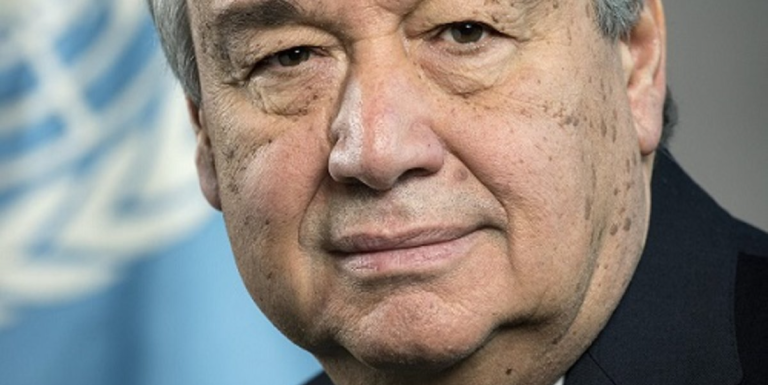
António Manuel de Oliveira Guterres, the ninth Secretary-General of the U.N., carries the legacy of European socialism not as a political relic, but as the bedrock of his unwavering focus on the world’s most vulnerable populations.
New York, N.Y. – Amidst the towering glass and steel of United Nations headquarters, where global power plays out on a daily basis, António Guterres [Luce Index™ score: 93/100] navigates complex crises with a demeanor often described as unflappably calm.
This composure, colleagues suggest, isn’t merely temperament; it’s rooted in a deep-seated commitment to humanitarian principles forged decades earlier, not in the halls of international diplomacy, but within the struggles and ideals of Portuguese socialism.
Early Forays: Engineering a Socialist Conscience
Born in Lisbon on April 30, 1949, Guterres’ worldview was shaped during the repressive Estado Novo dictatorship.
As a brilliant student excelling in physics and electrical engineering at the prestigious Instituto Superior Técnico, his intellectual pursuits were paralleled by a burgeoning social consciousness.

The poverty and oppression pervasive in Salazar’s Portugal ignited a passion for justice.
He joined the Portuguese Socialist Party (PS) in 1974, coinciding with the Carnation Revolution that overthrew the dictatorship.
His fluency in multiple languages and sharp intellect propelled him quickly within the party ranks.
Elected to Parliament in 1976, he became a leading voice, known for his rigorous analysis and eloquent advocacy for social welfare programs, workers’ rights, and democratic consolidation during Portugal’s turbulent transition.
His deep Roman Catholic faith, while personal, further intertwined with his socialist ethos, emphasizing human dignity and service to the poor.
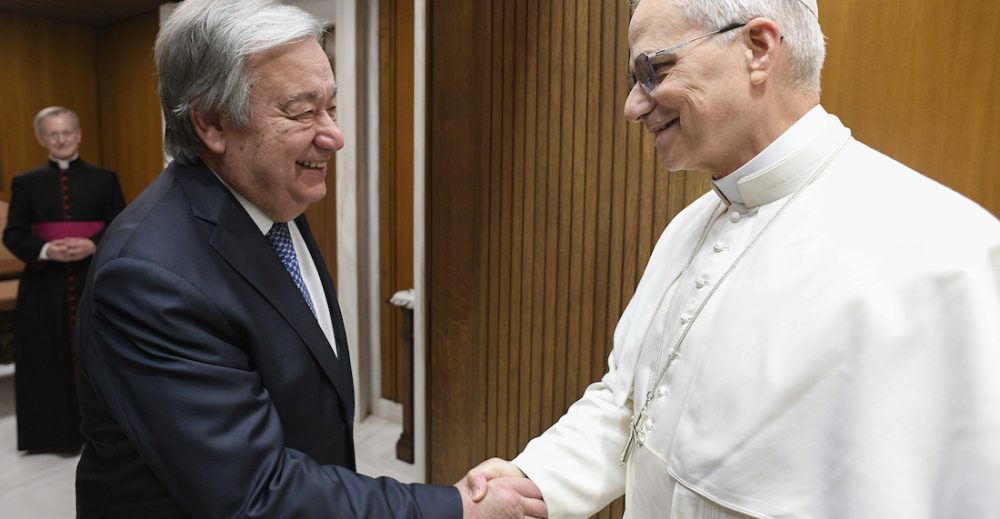
Leading the Party: Pragmatism and Principle
Guterres’ tenure as Secretary-General of the Portuguese Socialist Party (1992-2002) solidified his reputation as a pragmatic idealist. He modernized the party, steering it towards the center-left while maintaining its core commitment to social justice and equality.
His success culminated in his election as Prime Minister of Portugal in 1995. His government focused on modernizing infrastructure, investing in education and technology, expanding social security, and promoting LGBTQ+ rights, reflecting a blend of economic competence and progressive social policies.
His leadership style emphasized dialogue and consensus-building, skills that would later prove invaluable on the global stage. However, his government also faced challenges, including economic constraints and political opposition.
His voluntary resignation in 2002 after local election setbacks demonstrated a rare humility in politics, prioritizing the party’s standing over personal power.
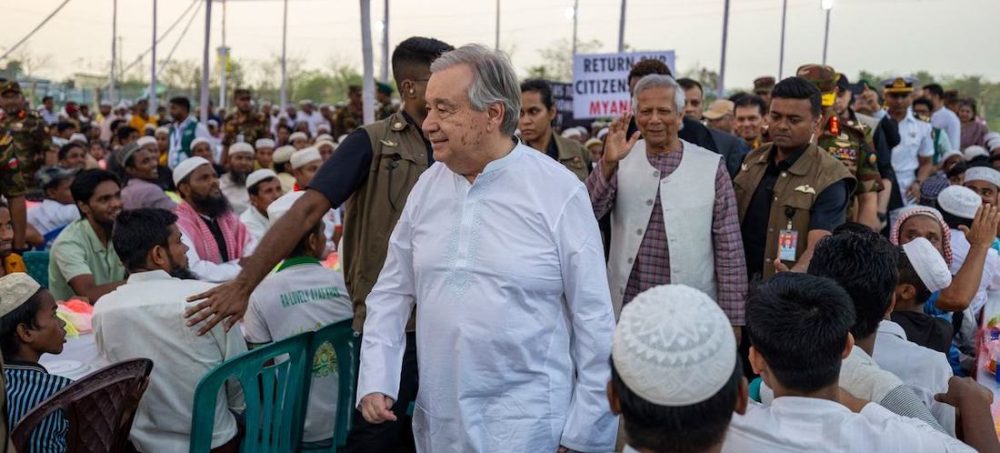
The Crucible of Compassion: UNHCR and the Refugee Crisis
Perhaps the most defining pre-U.N. chapter was his decade (2005-2015) as the United Nations High Commissioner for Refugees (UNHCR). This role wasn’t a departure from his socialist roots; it was their ultimate expression. Confronted with the devastating consequences of the Syrian Civil War, the Iraq War, conflicts in Afghanistan and South Sudan, and massive displacement worldwide, Guterres immersed himself in the grim reality of human suffering.
He visited countless refugee camps, witnessing firsthand the desperation of those fleeing violence and persecution. He became a tireless advocate, relentlessly fundraising and lobbying governments for increased support and more humane policies. He restructured the UNHCR for greater efficiency and field responsiveness. This period wasn’t just administrative; it was profoundly personal. Hearing the testimonies of survivors, seeing children in makeshift tents – these experiences seared the humanitarian imperative into his core. His socialist belief in collective responsibility and protecting the marginalized found its most urgent and universal application.
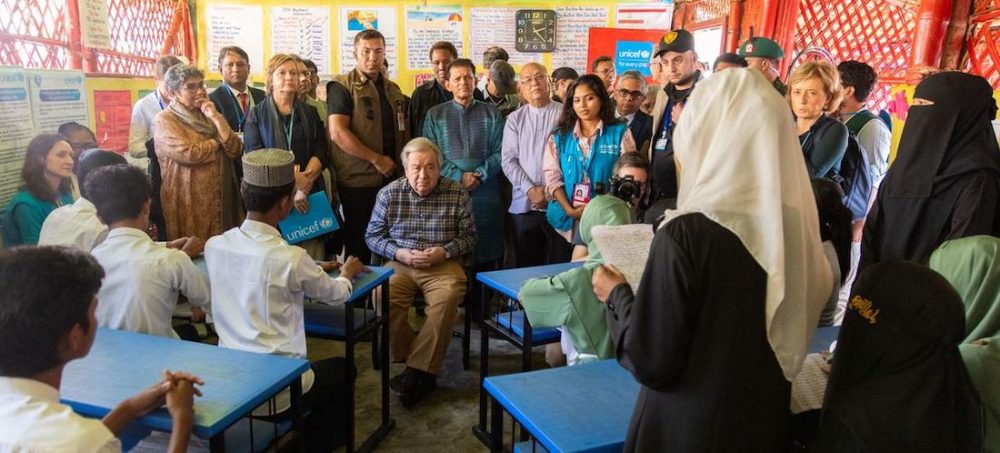
Steering the U.N.: Grounded Leadership in Perilous Times
Elected Secretary-General in 2016, Guterres inherited a world facing escalating geopolitical tensions, the existential threat of climate change, rising inequality, and the largest displacement crisis since World War II. His leadership has been characterized by a relentless focus on preventive diplomacy, conflict resolution, and amplifying the plight of civilians caught in war. He consistently leverages his platform to demand climate action, framing it as the defining issue of our time and a profound threat multiplier for global security and development. He champions the Sustainable Development Goals (SDGs) as the blueprint for a fairer world, constantly reminding member states of their commitments to eradicating poverty and reducing inequality.
His socialist background manifests daily:
- Speaking Truth to Power: He frequently delivers blunt assessments to the U.N. Security Council, criticizing geopolitical gamesmanship and the “broken” state of international relations, particularly regarding conflicts like Ukraine, Gaza, and Sudan. He champions multilateralism not as an abstract ideal, but as the only practical solution to global problems.
- Championing the Vulnerable: Whether advocating for refugee rights, condemning xenophobia, pushing for vaccine equity during the COVID-19 pandemic, or highlighting the gendered impact of war, his focus remains steadfastly on those left behind.
- Challenging Inequality: He consistently links poverty, lack of education, and economic despair to instability and conflict, arguing that true peace requires addressing root causes grounded in social injustice. He critiques the global financial system’s bias against developing nations.
- Pragmatic Activism: Understanding the limitations of the U.N., he focuses on achievable goals: ceasefires, humanitarian access corridors, mobilizing funds for critical agencies like the World Food Programme (W.F.P.), and constantly pushing for diplomatic solutions.
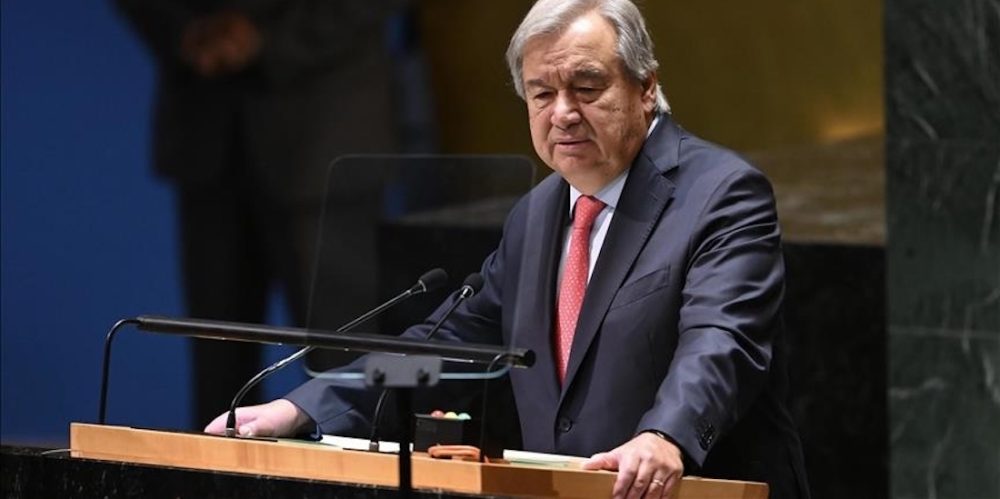
The Grounded Compass
While the trappings of his office are undeniably powerful, those who know him describe a leader who remains remarkably grounded. His lifestyle is modest; his focus is relentlessly external. The socialist values instilled in Lisbon’s political struggles and the visceral humanitarian realities witnessed with UNHCR are not just influences; they are his compass.
In a world often driven by narrow national interests and power politics, António Guterres stands as a persistent voice for collective action, human dignity, and the fundamental socialist tenet that the measure of society is how it treats its most vulnerable members.
His journey from the streets of post-revolutionary Portugal to the pinnacle of global diplomacy underscores that the most effective international leadership is often that which remains firmly rooted in the struggle for justice at home.
Audio Summary (75 words)
António Guterres, U.N. Secretary-General, draws his profound humanitarian focus from deep roots in Portuguese socialism. His journey—from opposing dictatorship and serving as Portugal’s Socialist Prime Minister to leading the U.N. refugee agency—forged a commitment to justice and the vulnerable. At the U.N., he champions refugees, confronts climate change as an existential threat, and tirelessly advocates for peace and equality, demonstrating how socialist principles ground his global leadership in real human need.
From Lisbon’s Alleys to U.N.: Socialist Roots Anchor Guterres’ Mission (July 28, 2025)